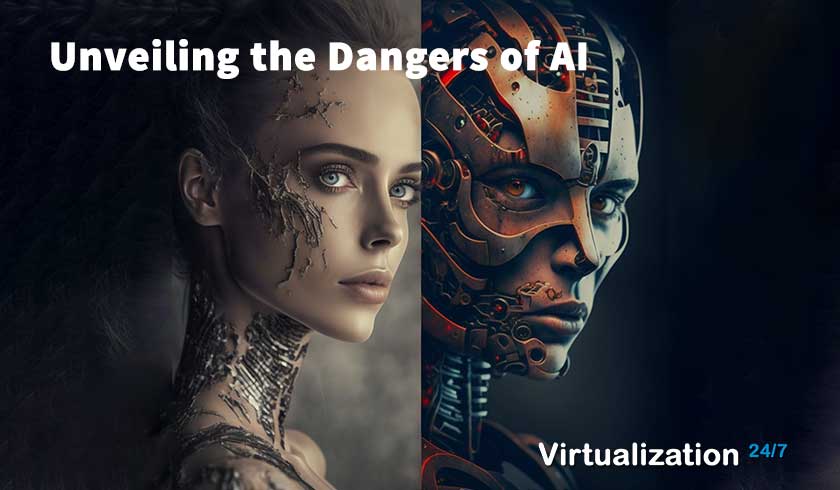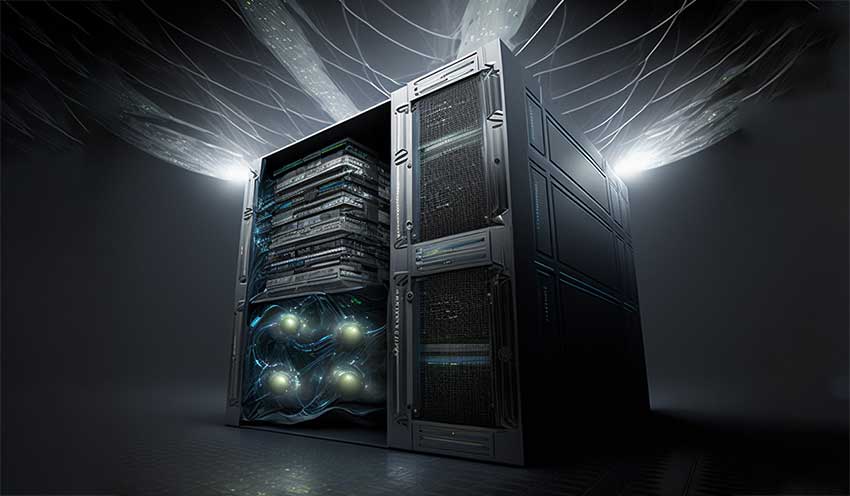AI – A Risky Business: Unveiling the Dangers of AI
- Byron Zepeda
- Category: Artificial Intelligence (AI)
- Read Time: 4 mins

AI has the potential to revolutionize our lives in unprecedented ways, from creating more productive workplaces to developing advanced personal service robots. While the potential benefits of AI are tremendous, there are also some very real risks that come along with this technology. In this article, we'll explore the dangers of AI and discuss how they can be managed.
Duplication of Biases
One of the biggest dangers of AI is its potential to duplicate existing biases and discrimination. Algorithms can learn from biased data and replicate these biases in their predictions, decisions, and actions. For example, an AI algorithm might sort job applicants based on gender or race, which would lead to discriminatory hiring practices. As a result, it’s important for developers to be aware of the potential for bias and work to design algorithms that promote fairness and equity.
Increased Job Automation
The widespread adoption of AI is likely to result in increased automation of certain jobs, particularly routine and low-skilled tasks. This can have a significant impact, as it could result in job losses across many industries and could also lead to the displacement of entire communities that were previously dependent on these jobs. As AI technology becomes more sophisticated, more complex roles and industries may be impacted by automation. Therefore, it’s important for employers and policymakers to consider these potential impacts to ensure they are prepared.
For those of us in the IT industry, our first thought is likely to be of us getting fired, but that's not likely to happen anytime soon, nor would it be practical to fire everyone. If anything, we're likely to start using AI to do some of our simpler tasks by asking AI to help us do our daily mundane routines and allowing us to focus on new initiatives and start working on the backlog of projects we may have.
Over-Reliance on AI
As AI begins to be adopted for more and more roles, it’s possible that people will become overly reliant on this technology. This can be problematic, as it could lead to a decrease in human creativity and problem-solving skills. Additionally, maximum efficiency may not be achieved if humans are taken out of the equation entirely. Finally, an over-reliance on AI algorithms may also result in situations where people are unable to explain or understand how decisions are being made by the machine.
Data Security Risks
AI systems rely heavily on machine learning, meaning the system must be fed with vast amounts of data in order to ‘learn’ and improve its performance. This data needs to be stored securely, as a data breach or leak could have serious consequences. If a hacker was able to gain access to the company’s AI system, they could have access to large amounts of sensitive customer data as well as insights into how the business operates.
Inaccurate Prediction and Diagnosis
Artificial intelligence systems are becoming increasingly involved in diagnosing and predicting problems in important areas like healthcare. While these systems can improve the accuracy of medical diagnoses, there is a risk that they could be based on incomplete or inaccurate data. If the AI system is not provided with sufficient data or is not well trained it won’t be able to accurately distinguish between healthy and unhealthy results. This could lead to an incorrect diagnosis, misdiagnosis, or a failure to diagnose serious conditions.
Popular Tags
Latest Articles
-
VMs get Powered OFF when expanding virtual Disk
-
Temporarily clear locks from your VMs and disks fast
-
Simple Guide on How to Fix a Printer That's Offline
-
SSHing to a Ubiquiti Switch: A Step-by-Step Guide
-
How to Uninstall MSI Using PowerShell and an RMM
-
Getting Started with VMware: Subscribing to VMUG & Getting Discounted Licensing for Your Home Lab
-
AI – A Risky Business: Unveiling the Dangers of AI
-
Key Distinctions between VMware vSphere ESXi and Microsoft Hyper-V
Categories
Certifications













